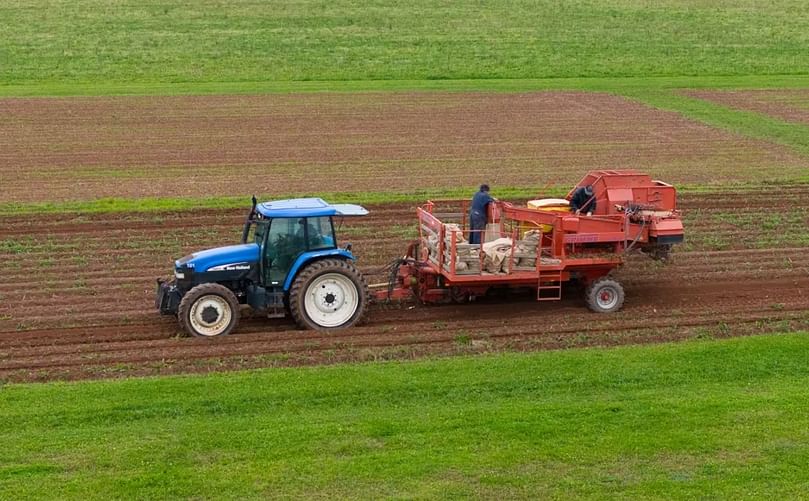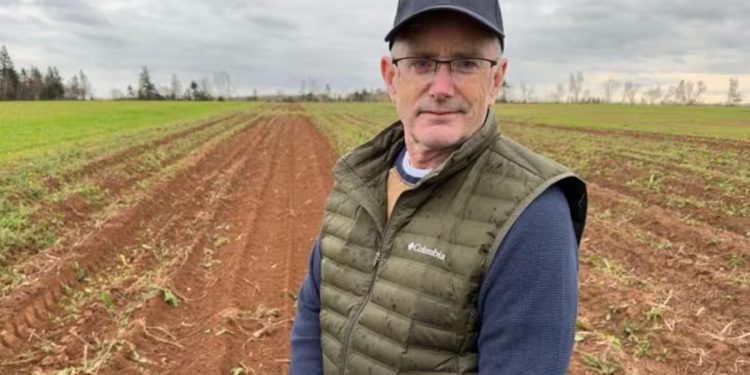#SustainableAgriculture #SoilHealth #FarmingInnovation #ResidualNutrients, PlowdownChallenge #PotatoCultivation #EnvironmentalFarming #AgriculturalSustainability #CropYield #FarmingRevolution
A groundbreaking experiment is underway in Prince Edward Island, challenging traditional farming practices. Scott Anderson, the science coordinator at Agriculture and Agri-Food Canada’s research station Harrington, initiated the “Plowdown Challenge.” In this innovative venture, a potato field was cultivated using only residual nutrients from the previous year’s crops, eliminating the need for additional fertilizers. This challenge not only showcases the potential of sustainable farming but also emphasizes the importance of nurturing the soil. Farmers and agricultural enthusiasts eagerly await the results, poised to revolutionize their approaches to cultivation.
In the heart of Prince Edward Island, a radical experiment is redefining the future of farming. The Plowdown Challenge, spearheaded by Scott Anderson, science coordinator at Agriculture and Agri-Food Canada’s research station Harrington, has set the stage for a groundbreaking revelation in sustainable agriculture. The challenge? Cultivating a bountiful potato field without the aid of additional fertilizers, relying solely on residual nutrients from prior crops.
“We were trying to come up with something that would demonstrate to producers that you can actually grow a decent crop of potatoes with reduced fertilizer,” explained Anderson. “We just wanted to come up with a different way of demonstrating how reducing fertilizer, you can still get a crop.”
The methodology behind the challenge was ingenious. The field was initially planted with red clover, which was plowed into the soil the previous summer. Following this, a cover crop of barley and tillage radish was sown in the fall. In the spring, the crew planted the Mountain Gem potato variety, refraining from adding any additional fertilizer apart from the residual nutrients left in the soil from the cover crops.
Anderson emphasized the significance of utilizing residual nutrients: “That’s part of the goal here, too, is to use some of the residual nutrients in the soil from previous plow-down crops… That just gives you extra credits in the bank when it comes to nitrogen, especially.”

The challenge has garnered attention not only for its innovative approach but also for the surprising results it yielded. As the potatoes were harvested, Roger Henry, a collaborator on the project, expressed his astonishment: “I was quite surprised, actually. There were some 10-ounce potatoes here, which are the ones that will give you a bonus at the Cavendish Farms contract.”
Beyond the excitement of the challenge, the experiment underscores the broader importance of soil quality. Henry emphasized, “It’s also not just for the farmers: I think it’s good for the public to learn the value of good soil. The prosperity of an area is related to the quality of the soil, and it’s important for us to nurture and maintain our soils.”
As the challenge continues to captivate the agricultural community, farmers, agronomists, agricultural engineers, and scientists eagerly anticipate the final results. The Plowdown Challenge is more than a test of innovative farming techniques; it represents a paradigm shift in sustainable agriculture, encouraging farmers to reconsider their methods and explore the untapped potential of their land.
The Plowdown Challenge serves as a testament to the ingenuity of sustainable agriculture. By harnessing the power of residual nutrients and prioritizing soil health, farmers can achieve remarkable yields while reducing their reliance on expensive fertilizers. This experiment not only challenges conventional farming wisdom but also opens new doors for environmentally friendly and economically viable practices. As we await the final results, the agricultural community stands on the cusp of a transformative era, where sustainable farming practices pave the way for a greener, more prosperous future.







